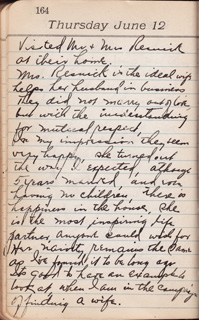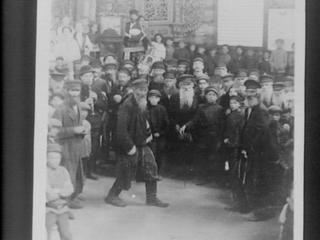
Death (by Walter Savage Landor)
Death stands above me whispering low
I know not what into my ear;
Of his strange language all I know
Is, there is not a word of fear.
Remark
(Not thoughts of suicide prompt
me to write the above poems on death
I want to live and have no death plans,
But death claimed my father my
dearest friend and adviser,
so I copied the poems from my
book of lyrics.)
————-
Here Papa gives us another look at the deep and complicated process unfolding within him. Since his father died, feelings of despair and resolve, self-defeat and self-preservation, have sloshed back and forth in his head, combining to create something new, unfamiliar, and volatile. In the last few days, we’ve watched him slowly separate the mixture and attempt to put its more destructive components back where they belong, though in the process he is often surprised by their potency.
Papa’s need to deny any suicidal interpretation of his poetry choices is one by-product of his efforts. It never would have occurred to me to think he has “death plans,” yet he goes out of his way to assure us he doesn’t. Perhaps Papa doth protest too much? Did he, in transcribing poems that acknowledge the seductive temptations of eternal sleep, briefly think he’d prefer it to living with his own sadness? Was the notion so shocking and therefore so obvious to him that he thought it could not but occur to his readers as well?
Several days ago, Papa had a quick brush with pessimism and bemoaned his own bad luck and helplessness in the face of the world’s unfairness. Moments later, though, he recovered himself and vowed to keep his mother and family safe in his father’s absence, thus regaining a sense of command over his own life. I think the same kind of thing has happened over the past few days. He quoted Donne and Landor’s poems as rallying cries against death’s potential power to ruin our lives with fear and sadness, and in so doing forced himself to look at his own fear and sadness, to test himself against it.
The wording he uses toward the end of this entry — “I want to live and have no death plans, But death claimed my father my dearest friend and trusted adviser, so I copied the poems” — demonstrates a growing mastery over his grief. Not only does he literally say he wants to live on, it’s almost as if he says it as a counterpoint to his father’s death: “My father is dead, and though I loved him, I must remember I’m still alive.” It’s another demonstration of how he learned to steer himself through dark and unfamiliar waters by the light of his essential optimism and resolve.









 His fellow congregants probably danced in the halls of the schul and poured out onto East Broadway, singing Hebrew songs and crowding together as they did on
His fellow congregants probably danced in the halls of the schul and poured out onto East Broadway, singing Hebrew songs and crowding together as they did on